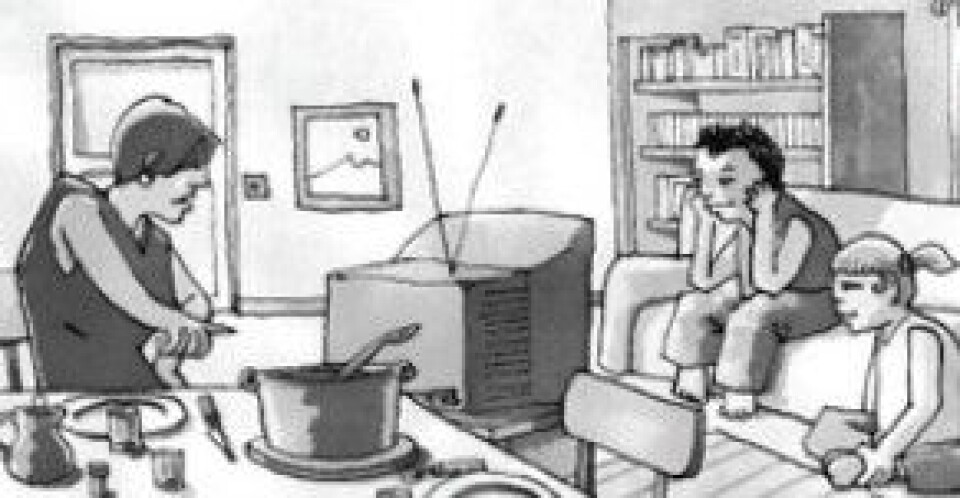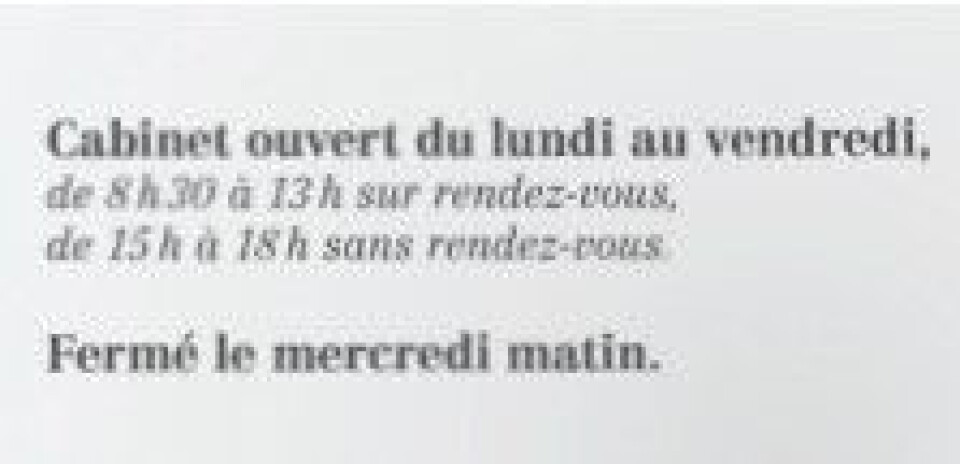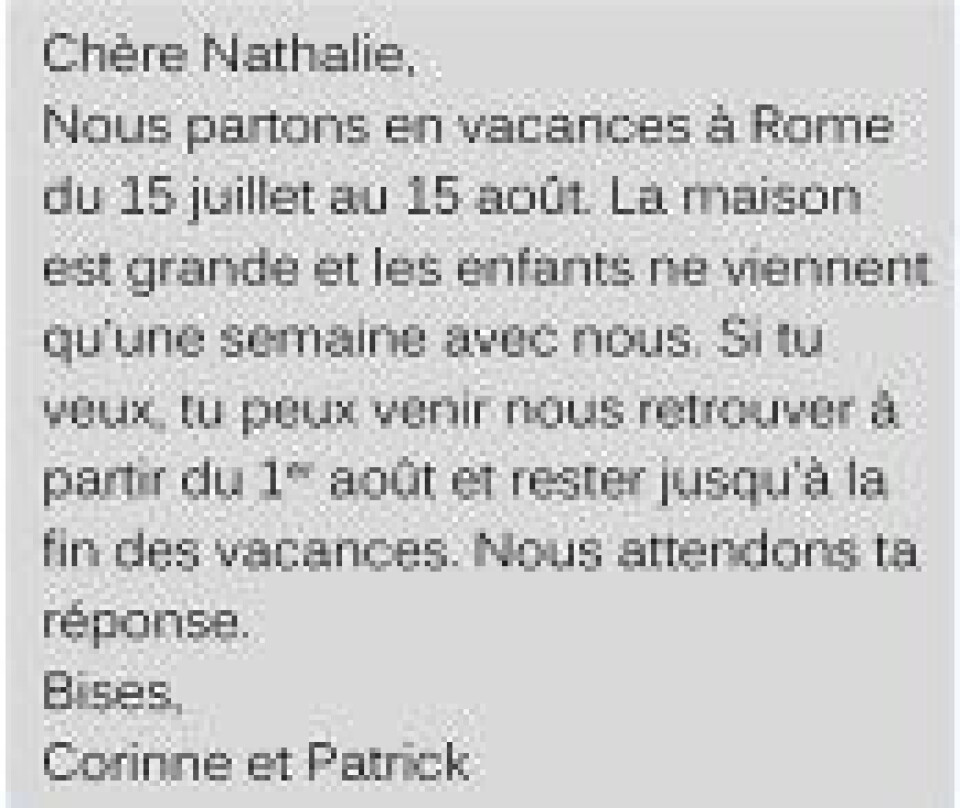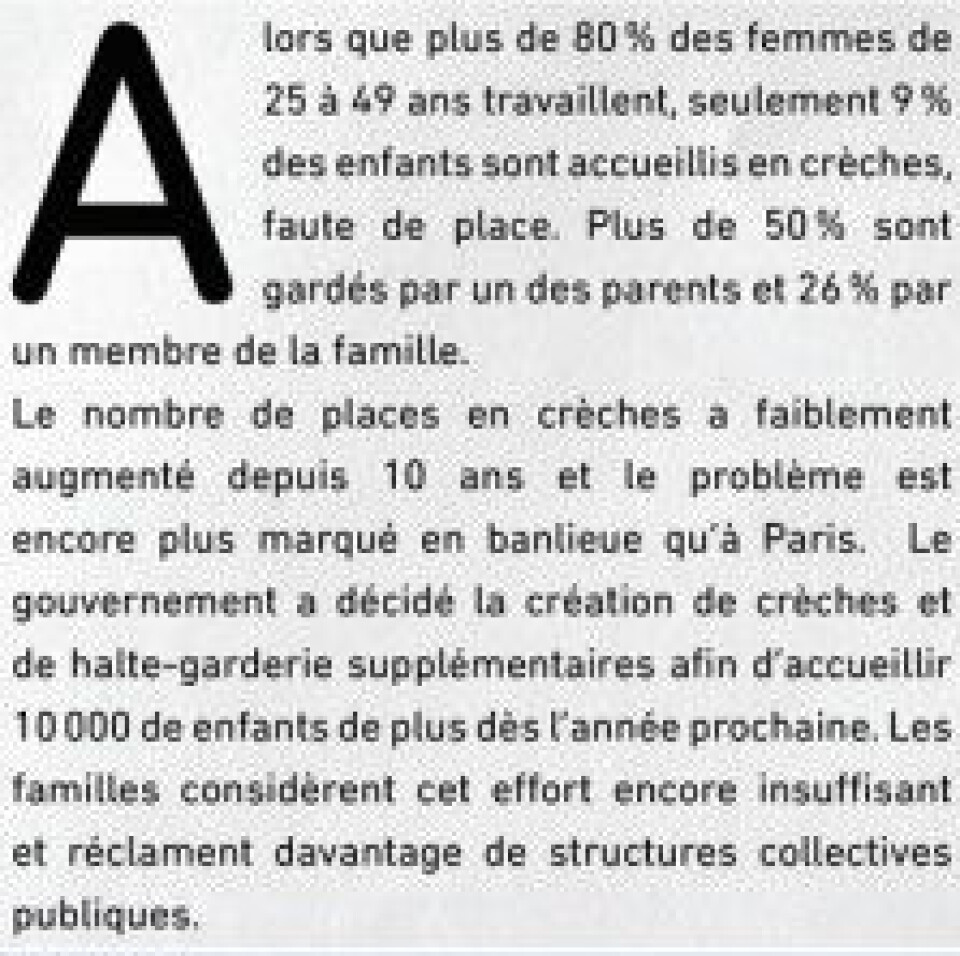-
Stendhal syndrome: has art ever driven you to distraction?
Discover the condition where art induces intense emotions and even physical reactions
-
When and why do we say c’est Noël avant l'heure?
A joyous phrase to use in the countdown to Christmas
-
The origins and meaning of French expression être le ravi de la crèche
A nativity-themed phrase for those who find magic in everyday moments
Is your French good enough to pass nationality language test?
Try sample questions

Taking a language test is part of the process for most people seeking to obtain French nationality.
Barring a few situations where it is not needed, a ‘TCF’ is a popular way to prove you meet the standards required and here you can try some questions out.
The rules on language requirements for French nationality and certain long-term residency cards have been tweaked over the years.
For example, in 2020 the main TCF (Test de connaissance du français) test was made harder with an added written section.
People aged over 60 and wanting to become French used to be exempt from a test and had their French evaluated only at the obligatory prefecture interview.
That also changed and you are now only let off if you have a doctor’s certificate stating you cannot take the test for health reasons, or if you are exempt, for example, because you did part of your schooling or university studies in France.
The level required for obtaining nationality is the B1 of the Common European Framework for Languages (CEFR).
The CEFR levels are A1, A2, B1, B2, C1 and C2 (A1 being beginner and C2 being roughly the level of a well-educated native speaker).
Read more: What’s it like to take the TCF French test when applying for nationality
Age can still be an exempting factor for a test for residency cards, but only from 65, and the level required has been raised from A1 to A2.
A2 means the ability to deal with straightforward information and to express yourself in familiar contexts.
You should be able to have a conversation on simple, everyday topics.
B1 is an intermediate level of French.
TCFs can be taken at many centres (see: here) and cost around €100.
Test yourself: Sample oral and written TCF questions
Oral comprehension
This part of the test involves listening to texts, then answering multiple choice questions on the content, choosing A, B, C or D.
It tests understanding of spoken French but is also partly a test of memory and concentration. There are questions of varying difficulty.
A member of our team has made recordings for the following examples here.
You can also find the answers there.

1. Choose the statement which corresponds best to the image.
2. Listen to the question and four replies. Choose the most appropriate reply.
3. Listen to a role-play scenario, followed by a question about what you have just heard. Which of the following is the correct answer?
A. En espèces.
B. Par chèque.
C. Par carte de crédit.
D. Par carte bancaire.
4. Listen to the dialogue and the question that is asked about it. Choose the correct response.
A. Annuler une réunion de travail.
B. Fixer un rendez-vous professionnel.
C. Passer un entretien d’embauche.
D. Trouver un nouveau conseiller.
5. Listen to the information presented and the question that follows it. Choose the best answer.
A. Contribuer à la recherche sur les questions stratégiques.
B. Créer un lieu de dialogue entre experts en géopolitique.
C. Fournir une aide pour le développement à l’international.
D. Intéresser l’opinion publique à l’actualité économique.
Language structure and written comprehension
The next sections are reading tests. They test understanding of grammar and of written texts.
For the first three questions, pick the correct word to complete the sentence.
For the images, choose the correct answer.
1. L’avocat…
A. que
B. lequel
C. auquel
D. duquel
… nous nous sommes adressés est un des meilleurs de Paris.
2. Four très chaud!…
A. Faites
B. Ferez
C. Ferons
D. Faisons
… attention à ne pas vous brûler!
3. Pour s’inscrire à la bibliothèque, il faut…
A. apporter
B. emporter
C. emmener
D. ramener
… une pièce d’identité.

4. Quand pouvez-vous voir un avocat sans rendez-vous?
A. En matinée.
B. À tout moment.
C. Le samedi.
D. Dans l’après-midi.

5. Que proposent Corinne et Patrick à leur amie?
A. De garder ses enfants en juillet.
B. De venir passer des vacances avec eux.
C. De partir une semaine à Rome.
D. De louer une maison ensemble en août.

6. Qu’apprend-on dans ce texte?
A. La majorité des enfants sont gardés par leurs proches.
B. Les mères préfèrent s’occuper d’elles-mêmes de leurs enfants.
C. Le nombre d’établissement satisfait la demande à Paris.
D. L’ouverture des structures promises résoudra le problème.
Written answers
The next test involves written answers to questions on varied topics.
Examples could include: “Emma wants to know if your friend Jenny is joining you both at the weekend: describe your friend: age, job, personality etc”; “Your cousin got married last Saturday: describe the wedding”; “Do you prefer shopping in supermarkets, small high-street shops or on the net. Explain why.”
Oral
The last is the oral, including presenting yourself and a role-play where you have to ask questions.
It ends with a section where you are asked to express your opinion on a topic for several minutes, such as organic food or vegetarianism, what makes a country ideal to live in, whether we could live without oil, or whether travel makes you a better person
The sample questions and image above are from: france-education-international.fr
Related articles
Cordialement, amicalement: the nuances of email sign offs in French
Hein: A little word that helps you sound much more French
Four French words to fill gaps in vocabulary that mean thing
























